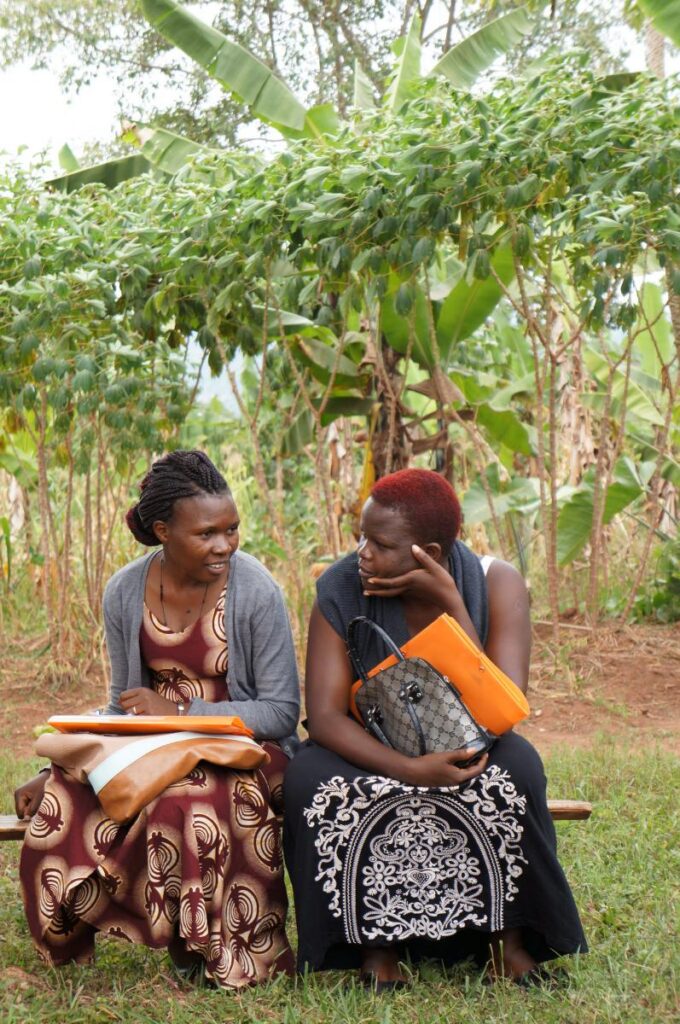By: HIllary Mara, GREAT Graduate Student Assistant and Cornell University Master’s in Public Administration Candidate
Paula Iragaba, Ugandan PhD student in Plant Breeding and Genetics at Cornell University and GREAT pilot course attendee, is looking to end the disconnect between breeders and smallholder farmers in Uganda. Paula was motivated to study cassava and the gender preferences of farmers of this important crop because even though cassava is one of the largest staple crops in Uganda, adoption rates of improved varieties remain low. Paula’s research aims to address what traits women smallholder farmers prefer so that these choices can be incorporated into breeding schemes to better meet farmers’ needs.

Paula and her research partner Winifred during the GREAT pilot course field visit in Wakiso District near Kampala, Uganda
Since 2013, the NextGen Cassava Breeding Project has sponsored Paula’s graduate work, starting with a post-graduate diploma course in Gender and Local Economic Development at Makerere University in Kampala, Uganda, which served as her theoretical and practical foundation for gender-focused research. Now NextGen Cassava supports Paula’s doctoral studies at Cornell, which she began in fall 2014.
In the summer of 2015, Paula returned to Uganda to begin collecting sex-disaggregated data of cassava trait preferences of smallholder farmers. Shortly after completing this data collection, Paula and her Uganda-based research partners, Ann Ritah Nanyonjo and Winifred Candiru, attended week one of the GREAT pilot course in Kampala Uganda in July 2015. Week one of the course focused on the theory and practice of gender-responsive research and data collection, serving as a timely new base of knowledge for Paula and her team to draw from in their reflections on recent field experiences.
Paula had a few key takeaways from the training that she applied to her research moving forward. From the Gender Dimensions Framework and its discussion of “access to assets,” Paula learned that “social norms, division of labor, and access and control of resources affect men and women differently…[and] it is important that these differences are factored in [to agricultural development] to ensure both men and women participate fully and benefit from the development process.” She also has a new appreciation of how “gender relationships between men and women are shaped by social beliefs of the underlying institutions or cultures” and are mediated by identities including class, age, education, ethnicity, and religion.
Paula is now undertaking the analysis and interpretation of the sex-disaggregated data she gathered last summer. Thanks to week one of the GREAT pilot course, she is keeping a “gender-lens” central to her work, noting that “in every planned activity, we should assess how men and women will be affected from the inception of the activity to the end in order to ensure gender disparities are not perpetuated.”
Week two of the GREAT pilot course, which will be held this September, will focus on gender analysis. Paula anticipates learning “how to organize and interpret information about gender relations to make clear the importance of gender differences for achieving development objectives.” This will be useful as Paula moves forward with her survey results to draw conclusions about the future of cassava breeding for smallholder farmers and especially women in the cassava value chain in Uganda.





